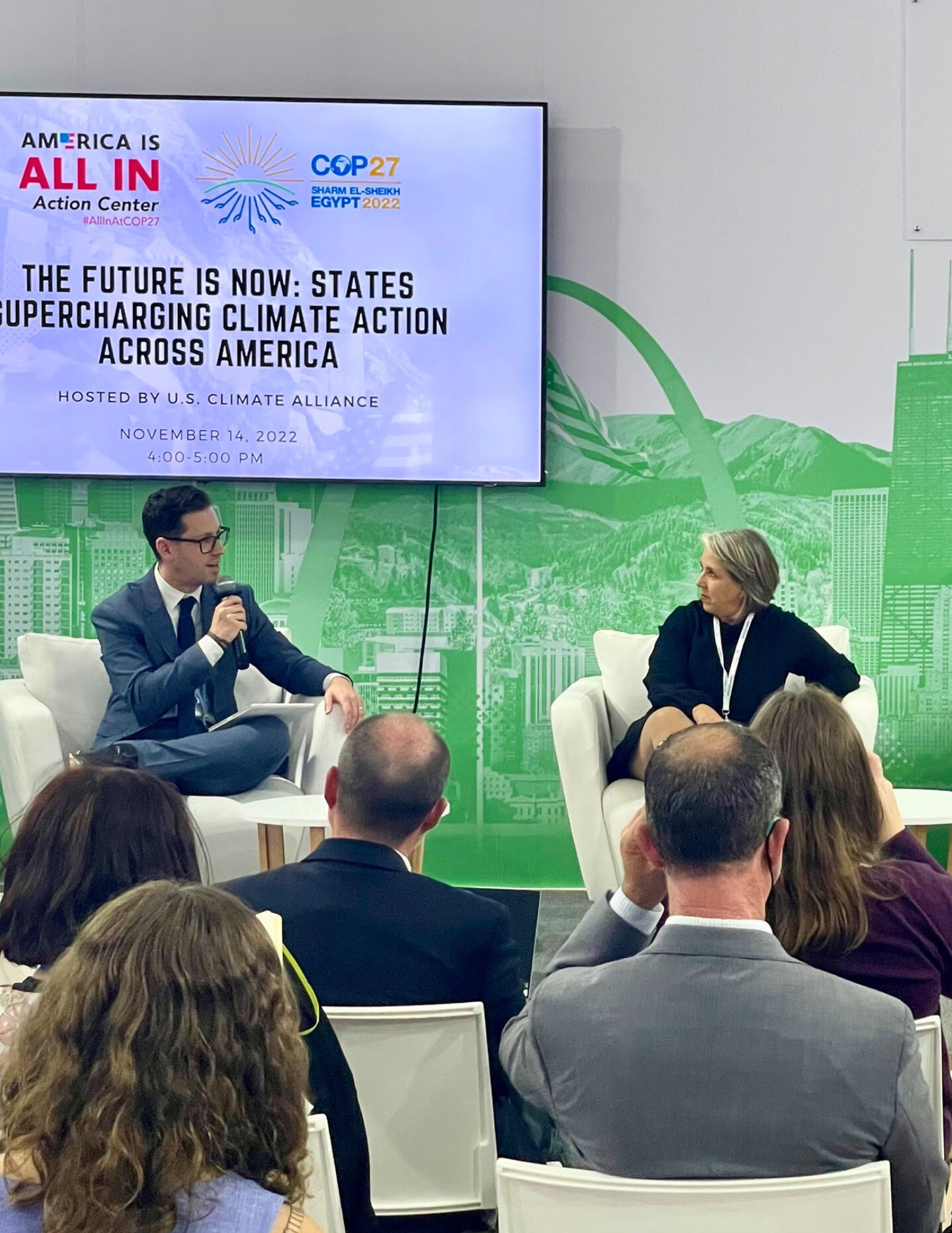Home / U.S. Climate Alliance Spotlights State-Led Climate Action on the Global Stage at COP27, Vows to Carry Momentum Into 2023

WASHINGTON, D.C. – After spotlighting state-led climate action on the global stage at the United Nations Climate Change Conference (COP27) in Egypt — alongside its delegation of more than a dozen top officials from five Alliance states, including Washington Governor Jay Inslee and New Mexico Governor Michelle Lujan Grisham — the U.S. Climate Alliance today vowed to carry this momentum into the new year as it welcomes new governors into its coalition and works to deliver on the promise Inflation Reduction Act.
“The climate threat is global and when we share solutions and expertise on the global stage, we can catalyze greater ambition and action,” said U.S. Climate Alliance Executive Director Casey Katims. “We’re leaving Egypt energized and motivated and we can’t wait to welcome our new members in the months ahead and carry this momentum into the new year.”
During its week on the ground at COP27 in Sharm El Sheikh, Egypt, the U.S. Climate Alliance convened and participated in more than half a dozen events, as well as bilateral and multilateral meetings to continue to advance climate collaboration and action at all levels. Events focused on state implementation of the Inflation Reduction Act and the state-federal partnership and featured Governors Inslee and Lujan Grisham, White House National Climate Advisor Ali Zaidi, Council on Environmental Quality Chair Brenda Mallory, and U.S. Department of Energy Secretary Jennifer Granholm, among others. Alliance Governors also joined multiple panel discussions with other subnational leaders from around the world. Events were hosted with key partners at the U.S. Center, America Is All In Action Center, and The Climate Registry’s Pathways to 1.5 Pavilion.
In addition to the governors, top Alliance state officials from California, Hawai‘i, Washington, New Jersey, and New Mexico also participated in events across COP27, including a panel discussion organized by the Alliance titled, “Trailblazers, Changemakers, and Innovators: Women Leading Across the U.S. Climate Alliance.”
Finally, Alliance Executive Director Katims convened and participated in a series of meetings and events with partner organizations, speaking at a U.S. Nature4Climate press conference highlighting broad support for natural climate solutions, a panel discussion hosted by The Nature Conservancy focused on climate mitigation and resilience, and an event on California’s climate leadership hosted by the California-China Climate Institute featuring top leaders from California’s Transportation Agency, Public Utilities Commission, and Energy Commission.
Launched on June 1, 2017 by the governors of Washington, New York, and California to help fill the void left by the previous administration’s decision to withdraw the U.S. from the Paris Agreement, the Alliance has grown to include 24 governors from across the U.S. representing approximately 60% of the U.S. economy and 55% of the U.S. population. Governors in the Alliance have pledged to collectively reduce greenhouse gas emissions by at least 26-28% below 2005 levels by 2025, at least 50-52% below 2005 levels by 2030, and collectively achieve overall net-zero greenhouse gas emissions as soon as practicable, and no later than 2050.
The Alliance’s states and territories continue to demonstrate that climate action goes hand-in-hand with economic growth, job creation, and better public health. While reducing emissions by 18% between 2005 and 2021, Alliance members grew their collective GDP by nearly 30%. The coalition’s states and territories are employing more workers in the clean energy sector, achieving lower levels of dangerous air pollutants, and preparing more effectively for climate impacts and executing more pre-disaster planning than the rest of the country.
###